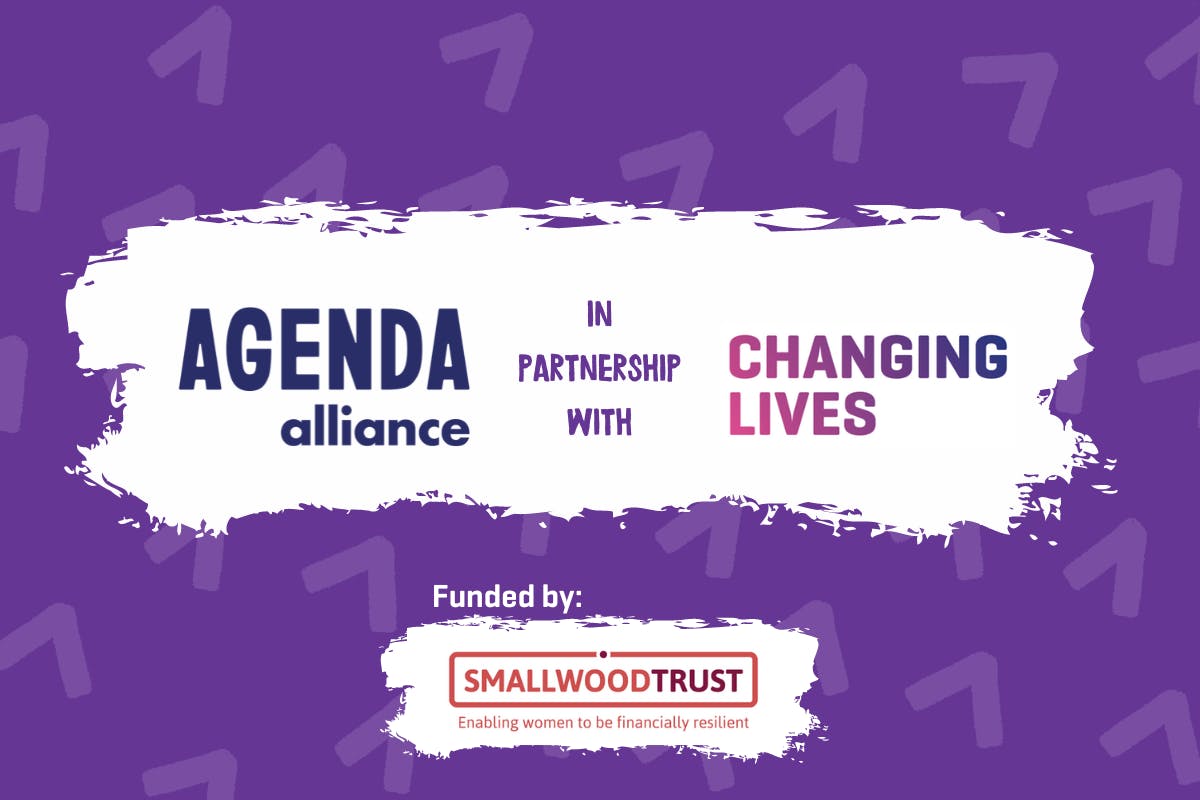Our Transforming Services for Women's Futures project, in partnership with Agenda Alliance examined how public services can be redesigned post-pandemic to better support women with multiple unmet needs. Based in Northumberland and Tyne and Wear, the project’s findings make recommendations for how services can be optimised at both regional and national levels.
Last month, we published our final report, ‘Dismantling Disadvantage’. The launch event brought together decision-makers and women with lived experience to share the report's key findings. During the event, we heard from the women researchers with multiple unmet needs who co-produced our project. They shared their collective experiences of being let down by services and why services need to change, saying:
"When we did reach out for support or when we were caught by the police, social services or someone else, we faced the issues you'll read about in this report. The picture is bleak, and we think that the services which are there to support and help people are actually making things much worse.
"One woman's experience was: When being assessed by social services to understand if I could keep my child, I was assessed jointly with my partner who was abusive. When alone with the worker, I confided my risk to her, and she challenged him on this while I was in the room during her next visit. Who do I trust in that scenario? For me it became better the devil I knew. Sadly, for my daughter, that was the wrong choice, and she was placed in the care of [my] paternal gran under an SGO.
"Another woman said, 'I was honest about my mental health and rather than given support, I was condemned for it and my children were placed with their father. My perpetrator has blocked me having contact with them since. No recourse to legal aid means my children have no access to a loving and capable mother. Today, with no contact from my abuser, I have no mental health concerns, but I still don’t have my children.'
We're sick of feeling like just a number in the system and like we don't matter. Child removal due to domestic violence, addiction, homelessness, poverty, or mental health is a disgrace. These are treatable conditions. Every one of them."
Moving on to discuss how these issues could be addressed, the women shared what made the difference to their lives:
"Some of us had workers who made all the difference. Be it midwife, drug worker, probation officer or social worker, we had that one worker who made all the difference. One person who met us where we were and believed in us. Believed we could change until we believed in ourselves.
"For some of us, mutual aid was a life safer. People who have experienced the same as us; held a space open for us to be honest, vulnerable, and get the support we needed. That was a massive help. The power of knowing we are not alone… we can’t put that into words.
"Things that were said by almost everyone that helps were: having a consistent worker – one who is willing to work for you, not slot you into what their tiny area of work allows; visible recovery – people who you can see getting well to inspire you; having treatment options – not a one size fits all, because we're not all one size; having a complaints procedure which is followed through so people can be listened to; and joined up services."
The women also spoke about the power of women holding space together, saying:
"Being there for other women is the cornerstone of recovery too. It gives us the strength, motivation and confidence to go on in our own lives… Today we have: Hope, belief, care, love, connection and trust in our lives and we can give it to others too."
Finally, they expressed their hope that by sharing their experiences, the necessary changes in policy would be made to support other women who "aren’t as lucky as us":
"Remember, the version of us you will be fighting for isn't as well put together as we are today. But please try and try harder than you want to because she is us. She is just like us, just nobody has held her door open yet."
We are grateful to our women researchers with multiple unmet needs who fed into this work, shaping our recommendations and outputs, and for allowing us to use their words in this blog. In the next blog in this series, we'll be sharing our panel speakers' thoughts on how services can best be improved to support women.



